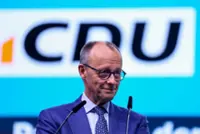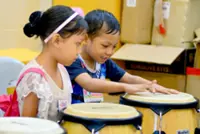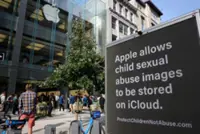The World Health Organization (WHO) on Feb 11 (2025) launched a new platform providing cost-free cancer medicines for thousands of children living in low- and middle-income countries, in a bid to improve lagging survival rates.
The first medicines were being delivered to Mongolia and Uzbekistan, the WHO said, with further shipments planned for Ecuador, Jordan, Nepal and Zambia as part of the project’s pilot phase.
The treatments are expected to reach around 5,000 children with cancer this year across at least 30 hospitals in those six nations.
“Countries in the pilot phase will receive an uninterrupted supply of quality-assured childhood cancer medicines at no cost,” the UN health agency said in a statement.
The WHO said that childhood cancer survival rates in low- and middle-income countries were often below 30%, compared with around 80% in high-income countries.
“For too long, children with cancer have lacked access to life-saving medicines,” WHO chief Dr Tedros Adhanom Ghebreyesus said.
The platform will bring “health and hope to children around the world”, he added.
El Salvador, Moldova, Senegal, Ghana, Pakistan and Sri Lanka are expected to join very soon.
The platform hopes to reach 50 countries in the next five to seven years, providing medicines for approximately 120,000 children.
An estimated 400,000 children worldwide develop cancer every year, most of them living in resource-limited settings, the WHO said.
“It is estimated that 70% of the children from these settings die from cancer due to factors such as lack of appropriate treatment, treatment disruptions or low-quality medicines,” it said.
The plan to establish the platform was first announced in December 2021.
It is a joint enterprise between the WHO and St Jude Children’s Research Hospital in Memphis, Tennessee in the United States.
The non-profit paediatric treatment and research institution has committed US$200mil (about RM891mil) to its launch, the WHO said, calling it the largest financial commitment ever made for childhood cancer medicines globally.
The WHO said cost-free provision would continue beyond the pilot phase, and the platform is working on developing its sustainability over the longer term.
WHO’s cancer control programme technical lead Dr Andre Ilbawi said they wanted to widen the platform to bring other partners on board.
“This marks the beginning of a global movement to provide children with cancer the medicines that they need, regardless of where they live, or their ability to pay,” he told a press conference.
Dr Ilbawi said the issue of children with cancer was rising up the agenda in wealthier countries.
“Childhood cancer is increasingly a leading cause of death for middle- and high-income countries – this is for children of the age of five to 14.
“So governments are increasingly paying attention,” he said.
The US government’s recent decision to withdraw from the WHO does not pose a threat to the platform, he added. – By Robin Millard/AFP





